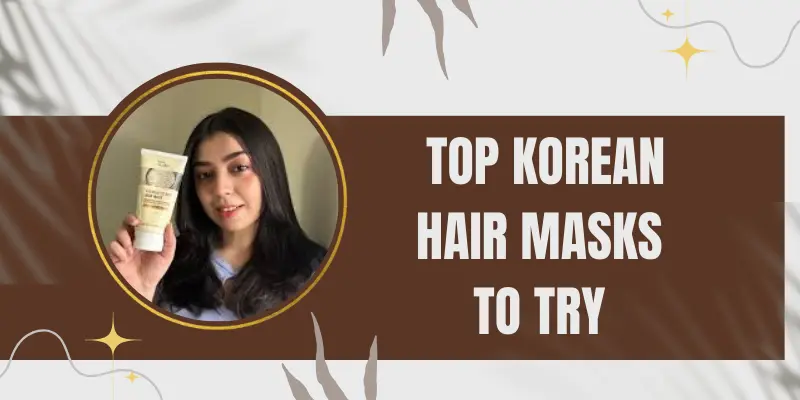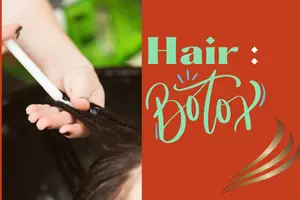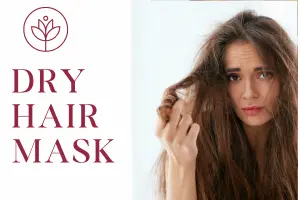The Complete Guide to Korean Hair Masks- Looks,Tools, Application and Many Others
Published: 15 Nov 2024
Are you tired of dry, lifeless hair that refuses to behave? Want to add shine, strength, and softness without spending a fortune at salons? Korean hair masks might be your haircare game-changer. With nutrient-rich ingredients like rice water, camellia oil, and ginseng, these masks hydrate deeply and restore vitality. Whether you DIY or shop store favorites, this guide has everything you need to nourish your hair naturally. Let’s explore the best Korean hair masks, how to use them, and the magic behind their results.
Powerful Korean Hair Mask Ingredients
Powerful Korean hair mask ingredients like ginseng, green tea, and snail mucin deeply nourish and restore damaged hair. These natural elements work best when applied evenly using the Best Hair Brushes for maximum absorption.
Rice Water & Fermented Extracts
A centuries-old secret in Asia, rice water contains amino acids, vitamins, and minerals that boost shine and hair growth. Fermented soybean and ginseng extracts add nutrients that soften and strengthen hair.
Camellia Oil
Lightweight and rich in fatty acids and antioxidants, camellia oil deeply conditions hair without weighing it down. It smooths frizz, boosts shine, and protects hair from environmental damage.
Green Tea Extract
This antioxidant powerhouse calms the scalp, reduces inflammation, and supports healthy hair growth—perfect for sensitive or itchy scalps.
Ginseng
Boosts blood circulation to the scalp, encouraging hair growth and strengthening roots. Often mixed with honey in masks to add hydration.
Seaweed (Kelp)
Packed with minerals, seaweed helps restore moisture and elasticity to brittle hair. It’s ideal for dry, damaged strands.
Top Korean Hair Masks to Try
Korean hair masks are known for their innovative formulas and nutrient-rich ingredients. The image below features top Korean hair masks that pair perfectly with Hair Brushes for smoother, shinier results.

Now that you’ve seen some of the best options available, let’s explore how each Korean hair mask targets different hair concerns and boosts overall hair health.
Mise En Scene Perfect Repair Hair Mask Pack
With camellia oil and nourishing botanicals, this mask repairs split ends and hydrates frizzy, brittle hair.
Tony Moly Haeyo Mayo Hair Nutrition Pack
Infused with egg yolk, shea butter, and macadamia oil, this fun, creamy formula is one of the most effective Dry hair masks, deeply moisturizing dry and damaged strands.
Nature Republic Argan Essential Deep Care Hair Pack
Ideal for dry or color-treated hair, this lightweight, argan-rich mask softens and smooths without leaving residue.
Easy DIY Korean Hair Mask Recipes
Easy DIY Korean hair mask recipes use natural ingredients like rice water, honey, and green tea to nourish and strengthen hair. When applied with Hair Brushes, these masks distribute evenly and penetrate more deeply for better results.
Rice Water & Aloe Vera Mask
Ingredients: Fermented rice water + aloe vera gel. How to Use: Mix and apply to ends. Leave for 10–15 mins, then rinse with cool water.
Ginseng & Honey Mask
Ingredients: Ginseng powder or extract + honey. How to Use: Apply to wet hair. Leave for 20 minutes. Rinse thoroughly. Boosts growth and strengthens roots.
How to Use a Korean Hair Mask (Step-by-Step)
Easy DIY Korean hair mask recipes use natural ingredients like rice water, honey, and green tea to nourish and strengthen hair. When applied with Hair Brushes, these masks distribute evenly and penetrate more deeply for better results.
1. Start with Clean Hair
Use shampoo to remove buildup for better absorption.
2. Towel-Dry Hair First
Damp hair (not soaking wet) absorbs nutrients more efficiently.
3. Follow the Instructions
Most masks work best when left on for 10–20 minutes.
4. Rinse Gently
Use cool or lukewarm water to lock in moisture.
5. Seal in the Benefits (Optional)
Apply a lightweight serum or oil to seal cuticles after masking.
Why Korean Hair Masks Are So Effective
Their success lies in blending nature with innovation. Ingredients like fermented extracts, herbal oils, and antioxidants nourish deeply without build-up.

Plus, their lightweight formulas are perfect for layering or frequent use. Many are vegan and free from harmful additives, making them ideal for a Vegan Hair Care Routine.
Personal Stories
“My hair was dry from years of bleaching. After using a camellia oil mask twice a week for a month, it felt soft again. Even my hairstylist noticed the difference.”
My Scalp Finally Breathed – Jason, 35
“I struggled with dandruff and an itchy scalp. A green tea-based Korean mask helped calm it down. Now, my scalp feels clean and refreshed.”
Conclusion
Korean hair masks are more than just a trend; they’re a game-changer in hair care. From hydrating dry ends to calming irritated scalps, there’s a formula for everyone. Whether you buy or DIY, your hair will thank you.
FAQs: Korean Hair Masks
Most Korean hair masks are designed to be used 1–2 times per week, depending on your hair type and condition. If your hair is very dry, frizzy, or chemically treated, you may benefit from using them twice weekly. For healthier or oily hair, once a week is usually enough. Overuse can lead to buildup, so it’s best to follow the product’s instructions.
Yes, Korean hair masks can be safe for oily hair as long as you choose the right formula. Lightweight options with ingredients like green tea, aloe vera, or tea tree extract help control excess oil. Avoid heavy masks that are packed with rich butters or too many oils, as they may weigh your hair down. Using the right type will nourish your hair without making it greasy.
Absolutely! Many Korean hair masks are formulated to be color-safe and free from sulfates and harsh chemicals. These masks help restore moisture lost during coloring and protect your color from fading. Look for products specifically labeled for colored hair, which often contain nourishing oils and proteins. Regular use can make color-treated hair shinier and healthier.
Only if the mask specifically says it is safe for overnight use. Some masks with natural ingredients like aloe vera, coconut oil, or camellia oil are gentle enough for extended wear. However, most Korean masks are designed for 10–20 minutes and should be rinsed out. Leaving the wrong mask on overnight may cause buildup or irritation, so always follow the directions.
For damaged hair, Korean masks with camellia oil, argan oil, rice water, and ginseng are excellent choices. Camellia and argan oils deeply hydrate and repair split ends, while rice water strengthens strands with protein. Ginseng is especially popular in Korean formulas for boosting scalp circulation and hair resilience. Together, these ingredients help restore smoothness and strength.
Two highly recommended options are the Mise En Scene Perfect Repair Hair Mask and the Nature Republic Argan Essential Mask. Both are deeply hydrating and ideal for dry, coarse, or frizzy hair. These masks replenish moisture, reduce breakage, and leave hair soft and silky. Many people notice visible improvements after just a few uses.
Yes, some Korean hair masks are formulated to support scalp health and reduce hair fall. Masks with ginseng, ginger, or fermented herbal ingredients help stimulate circulation and strengthen roots. While they don’t directly regrow hair, they create a healthier scalp environment that supports growth. Consistent use, along with a healthy routine, can improve thickness over time.
Most Korean hair masks are lightweight, hydrating, and versatile, making them suitable for a wide range of hair types. Whether your hair is straight, curly, fine, or thick, there’s a formula designed for your needs. Hydrating masks with aloe or green tea are great for fine hair, while richer oils work best for thick or damaged strands. It’s about picking the right one for you.
Typically, Korean hair masks should be kept on for 10–20 minutes. This gives enough time for nutrients to penetrate the hair shaft and provide hydration. Some intensive repair masks may require a little longer, but always check the instructions. Leaving a mask on too long won’t always give extra benefits and might even weigh hair down.
Usually, you don’t need to use conditioner after a Korean hair mask since the mask itself acts as an intensive conditioner. However, if your hair still feels rough or if you want extra softness, you can apply a light conditioner afterward. This is especially helpful for very dry or thick hair. For most people, the mask alone is sufficient for smoothness.

- Be Respectful
- Stay Relevant
- Stay Positive
- True Feedback
- Encourage Discussion
- Avoid Spamming
- No Fake News
- Don't Copy-Paste
- No Personal Attacks

- Be Respectful
- Stay Relevant
- Stay Positive
- True Feedback
- Encourage Discussion
- Avoid Spamming
- No Fake News
- Don't Copy-Paste
- No Personal Attacks





